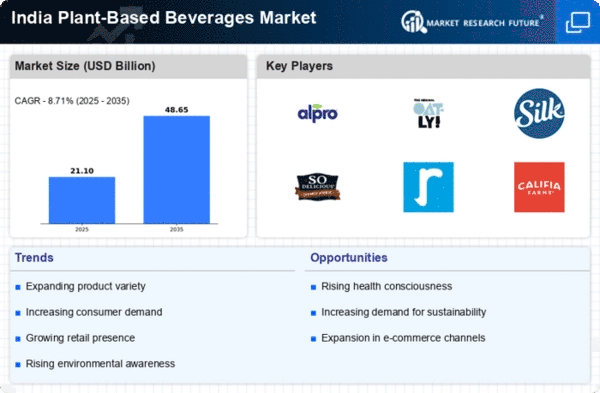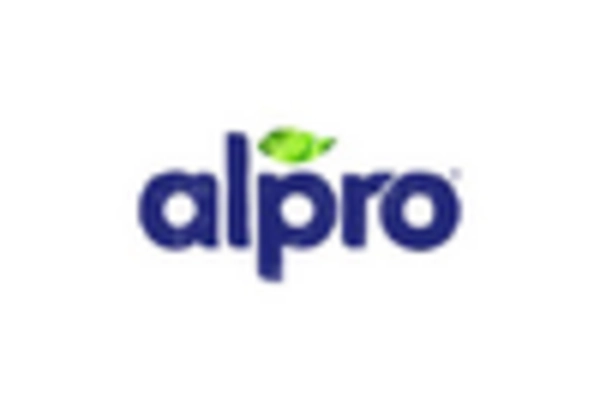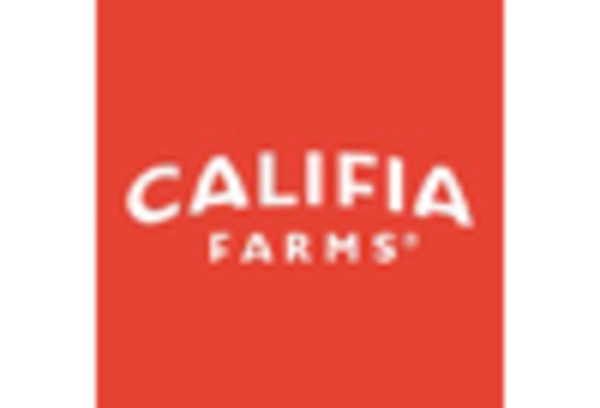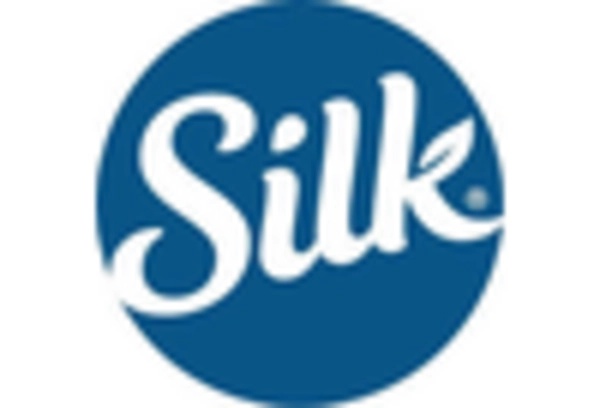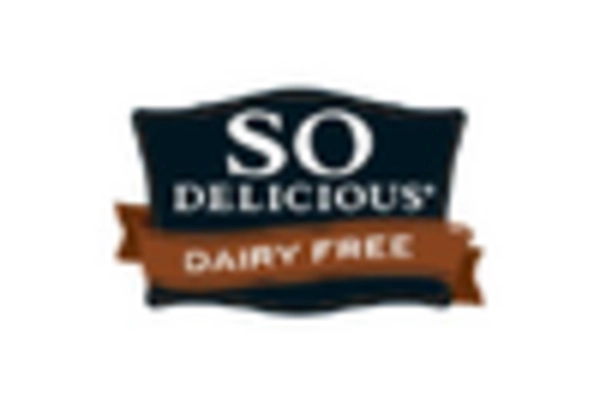Innovative Marketing Strategies
Innovative marketing strategies are playing a crucial role in shaping the plant based-beverages market. Companies are leveraging social media platforms and influencer partnerships to create engaging campaigns that resonate with younger audiences. This approach appears to be effective, as brands report increased engagement and sales through targeted advertising. Additionally, the use of storytelling in marketing helps to connect consumers with the origins of plant-based ingredients, fostering a sense of authenticity and trust. As competition intensifies, brands are likely to invest more in creative marketing initiatives to differentiate themselves in the crowded marketplace, thus driving growth in the plant based-beverages market.
Growing Demand for Dairy Alternatives
The demand for dairy alternatives is rapidly increasing, significantly influencing the plant based-beverages market. With a substantial portion of the population seeking lactose-free options, plant-based beverages such as almond milk, oat milk, and coconut milk are gaining traction. Market data indicates that the dairy alternatives segment is expected to grow at a CAGR of over 15% in the coming years. This shift is driven by both health considerations and ethical concerns regarding animal welfare. As consumers become more aware of the environmental impact of dairy farming, the plant based-beverages market is likely to see a continued rise in the popularity of these alternatives.
Rising Veganism and Plant-Based Diets
The increasing adoption of veganism and plant-based diets in India is a pivotal driver for the plant based-beverages market. As consumers become more health-conscious, they are gravitating towards beverages that align with their dietary preferences. Reports indicate that the number of vegans in India has surged, with estimates suggesting a growth of over 20% in recent years. This shift is not merely a trend but reflects a deeper cultural change towards plant-based living. Consequently, beverage manufacturers are responding by innovating and expanding their product lines to cater to this demographic. The plant based-beverages market is thus witnessing a significant transformation, with new entrants and established brands alike focusing on plant-derived ingredients to meet the evolving consumer demands.
Increased Awareness of Health Benefits
Awareness regarding the health benefits associated with plant-based beverages is significantly influencing the plant based-beverages market. Consumers are increasingly informed about the nutritional advantages of these drinks, such as lower cholesterol levels and improved digestion. Data suggests that the consumption of plant-based beverages can lead to a reduction in chronic diseases, which resonates with the health-oriented mindset prevalent in India. As a result, brands are emphasizing the health attributes of their products, often highlighting ingredients like almond milk, coconut water, and soy milk. This focus on health not only attracts health-conscious consumers but also encourages traditional beverage drinkers to explore alternatives, thereby expanding the market's reach.
Government Support for Sustainable Practices
Government initiatives aimed at promoting sustainable agricultural practices are positively impacting the plant based-beverages market. Policies encouraging the cultivation of crops like soy and almonds, which are essential for plant-based beverages, are being implemented. This support not only aids farmers but also ensures a steady supply of raw materials for beverage manufacturers. Furthermore, subsidies for organic farming practices are likely to enhance the quality and availability of plant-based ingredients. As sustainability becomes a focal point in policy-making, the plant based-beverages market stands to benefit from increased investment and consumer interest in eco-friendly products.


